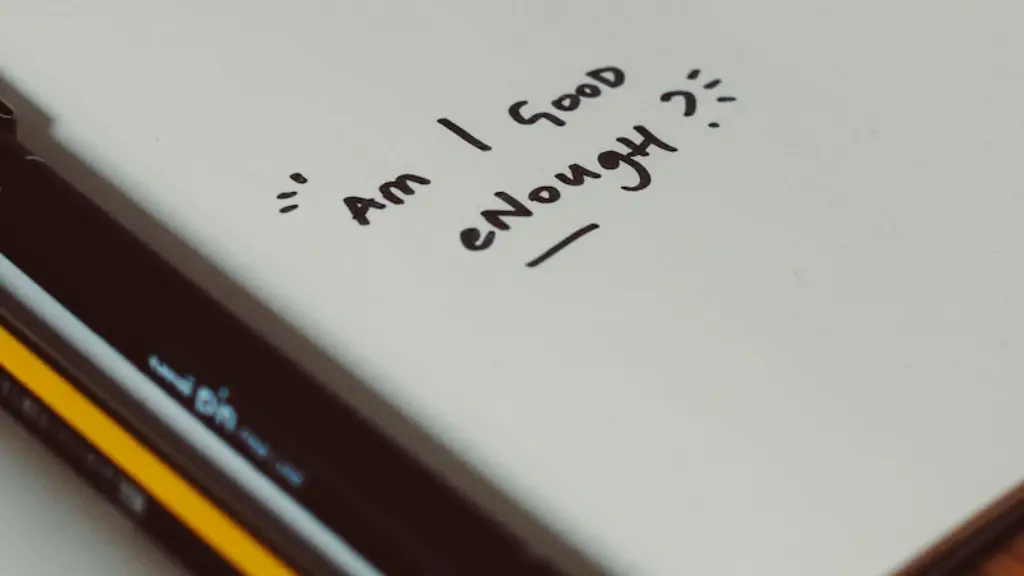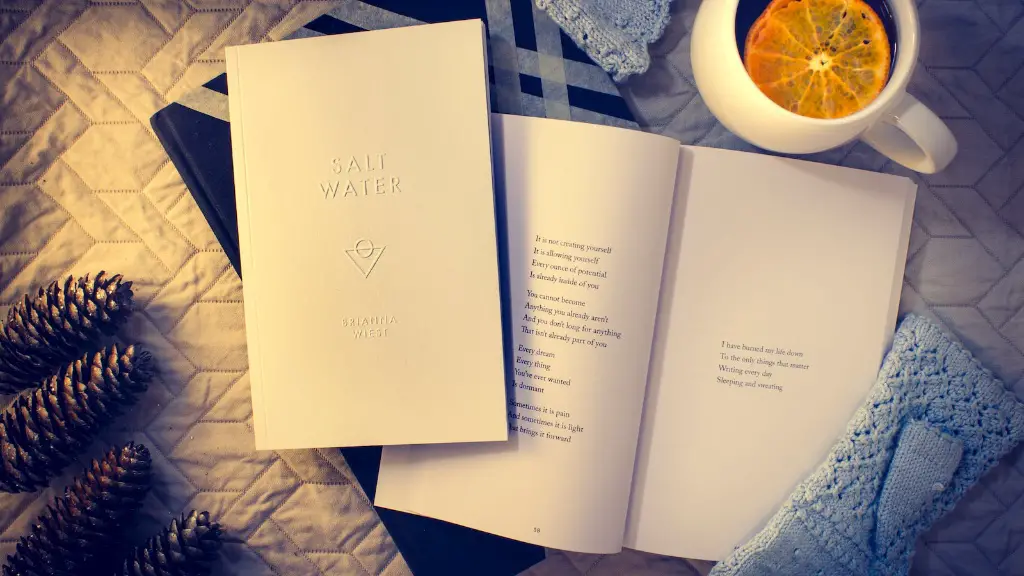Human beings often appreciate art that relies on some form of repetition. Poetry is no exception – it’s the way the poet is able to create a certain rhythm, mood and atmosphere with the use of repeated words and phrases that often leave an impact on the reader. So why is repetition important in poetry? This article will explore the answer to this question through a comprehensive analysis.
Creating Rhythm and Cadence
Repetition plays a key role in creating a mesmerizing rhythm and cadence in poetry. When words, phrases and lines are repeated, it often helps to create a sense of structure and stability, allowing the reader to recognize and be able to appreciate the poetic meter. Repetition helps to convey the intended message in a powerful and effective way, as it allows the reader to internalize the poem more deeply.
Stressing Emotions
The use of repetition in poetry can help to express and emphasize certain emotions. Poets often use recurring words and phrases as a way of highlighting and stressing their feelings, allowing the reader to become more deeply involved in the poem. This can be seen in many popular poems, where the poet has used repetition as a tool to convey their feelings, whether it be sadness, anger, joy or despair.
Making the Poem More Memorable
Repetition also has an important function in making the poem more memorable. It enables the reader to recall the key points of the poem much more easily and allows them to recall the poem’s message long after they have finished reading it. Furthermore, this type of memorability is often used as a way to connect with the readers on an emotional level, as they are more likely to remember the words of a poem if they are repeated.
Evoking Imagery and Symbolism
Repetition can also be used to evoke imagery and symbolism in a poem. The use of recurring words and phrases can help to build upon certain ideas and motifs in a poem, allowing for the poet to create vivid and intriguing images in the reader’s mind. Repetition can also be used as a way to reinforce certain symbols, as the use of recurring words and phrases can have a powerful effect on the reader’s understanding of the poem.
Adding Depth and Meaning
Repetition is also important in adding depth and meaning to a poem. When words and phrases are repeated, it causes the reader to look beyond the literal meaning and think more deeply about the symbolism and ideas being conveyed by the poet. Repetition helps to draw out and reveal the underlying themes and messages in a poem, allowing the reader to gain a deeper understanding and appreciation of what the poet is attempting to convey.
Drawing Attention to the Poem’s Message
Finally, repetition is often used as a way to draw attention to the poem’s message. By repeating words and phrases, the poet is able to emphasize the most important points of the message, ensuring that the reader is able to gain a clear understanding and insight into the poem’s purpose and meaning. This type of repetition can also be useful in making the poem more persuasive, as it allows the reader to connect with the writer on an emotional level and be moved by the words of the poem.
Exploring Other Forms of Repetition in Poetry
Repetition can be used in many different forms in poetry, such as alliteration and assonance. Alliteration is the repetition of the same consonant sound at the beginning of successive words or syllables, while assonance is the repetition of similar vowel sounds. These forms of repetition are often used as a way to add beauty and rhythm to a poem and helps to make the poem more memorable and emotive.
Understanding How Repetition Works
In order to understand how repetition works in poetry, it is important to consider the context in which it is being used. All forms of repetition should be used in a meaningful and deliberate manner, as it is often used as a way to emphasize a particular point or emotion. Poets should also be aware of how long the repetition should last, as too much repetition can become tedious and dull.
Explaining the Purpose of Repetition
When it comes to understanding why repetition is important in poetry, it is important to consider the purpose of the repetition. Repetition is often used as a tool to create a certain rhythm, build up tension and emphasize certain emotions. It can also be used to add depth and meaning to a poem and help to draw attention to a poem’s key themes and messages. Ultimately, repetition is used as a way to create a powerful and meaningful poem.
Critically Analyzing Repetition in Poetry
To truly appreciate the use of repetition in poetry, it is important to critically analyze how it is used. By closely examining a poem and looking for patterns of repetition, the reader is better able to gain an understanding of the poet’s purpose and the message put forward in the poem. Additionally, it also helps to gain a better appreciation of the poetic devices and techniques used by the poet to create a powerful and meaningful poem.
Exploring the Impact of Repetition
The impact of repetition on poetry cannot be overstated. It is often seen as a crucial ingredient of great poetry, as it allows the reader to experience the poem on a deeper level and gain a better understanding of its meaning and purpose. Without repetition, the poem may appear dull and lifeless, whereas with repetition, the poem is infused with life and energy.
Understanding Its Use as a Literary Device
While repetition can be used to create a powerful and emotive poem, it is also important to understand its use as a literary device. Repetition is often used as a way to bring attention to certain ideas and messages and can be used to structure a poem and create a memorable rhythm. As a result, repetition is often seen as a crucial component of great poetry, as it helps to bring life and energy to the poem.
Exploring Its Effect on the Reader
Finally, it is important to explore the effect of repetition on the reader. Repetition helps to draw the reader in, as the repetition of key words and phrases often helps to create a sense of familiarity and recognition. Additionally, repetition can also help to create a powerful emotional response in the reader, as the words and phrases are often linked to the poem’s overall message and purpose.



